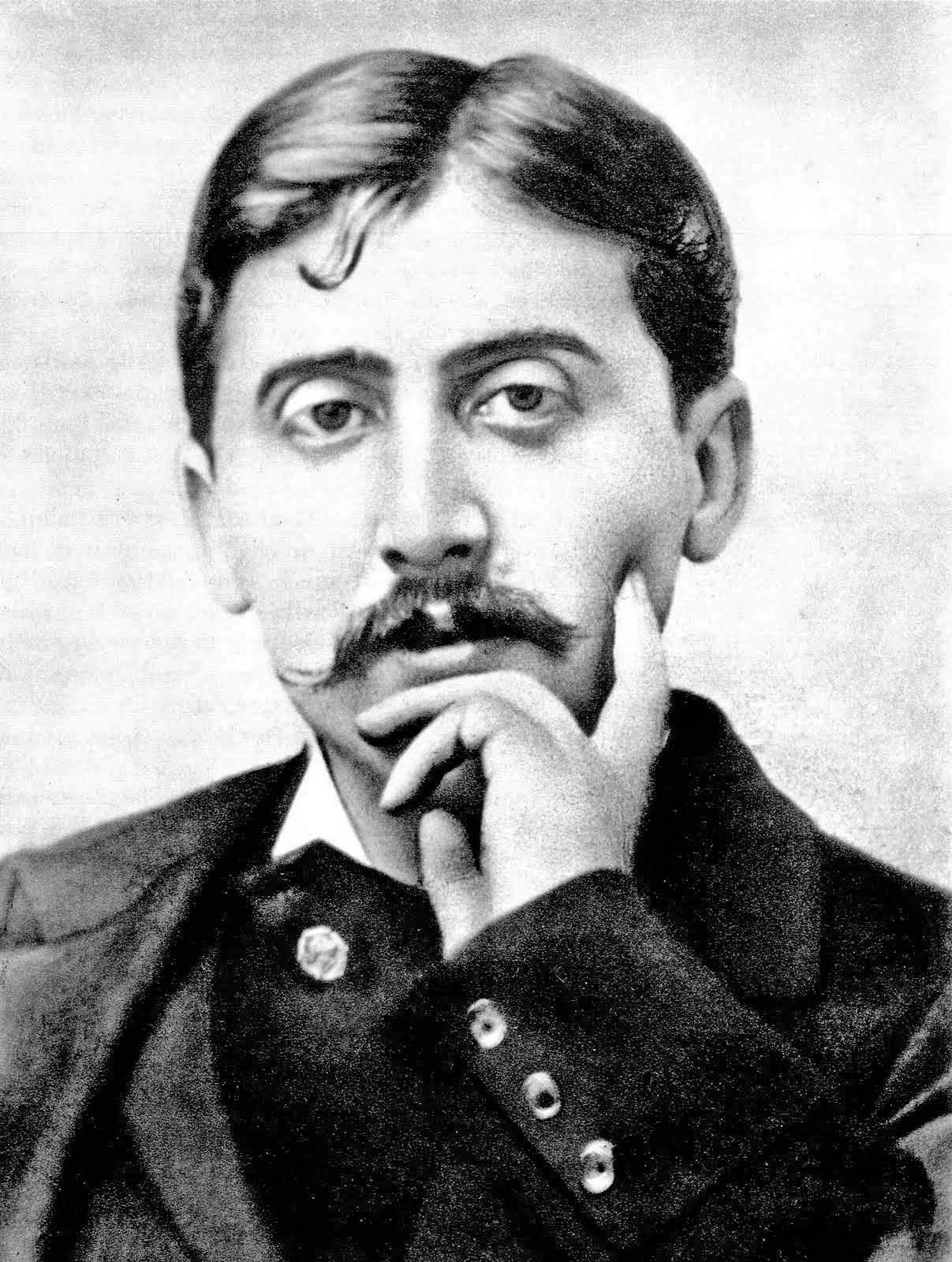Marcel Proust najznámejšie citáty

„V živote nie je dôležitá osoba, ktorú milujeme, ale skutočnosť, že milujeme.“
Potvrdené výroky
Zdroj: [2]

Marcel Proust Citáty o ženách
Marcel Proust Citáty o šťastí
Marcel Proust citáty a výroky
Marcel Proust: Citáty v angličtine
Le seul véritable voyage, le seul bain de Jouvence, ce ne serait pas d'aller vers de nouveaux paysages, mais d'avoir d'autres yeux, de voir l'univers avec les yeux d'un autre, de cent autres, de voir les cent univers que chacun d'eux voit, que chacun d'eux est.
Zdroj: In Search of Lost Time, Remembrance of Things Past (1913-1927), Vol. V: The Captive (1923), Ch. II: "The Verdurins Quarrel with M. de Charlus"
http://books.google.com/books?id=Uhbxgjsxyx0C&q=%22It+is+always+thus+impelled+by+a+state+of+mind+which+is+destined+not+to+last+that+we+make+our+irrevocable+decisions%22&pg=PA622#v=onepage
Ce n'est jamais qu'à cause d'un état d'esprit qui n'est pas destiné à durer qu'on prend des résolutions définitives.
http://books.google.com/books?id=xtWwncTOUbQC&q=%22Ce+n'est+jamais+qu'%C3%A0+cause+d'un+%C3%A9tat+d'esprit+qui+n'est+pas+destin%C3%A9+%C3%A0+durer+qu'on+prend+des+r%C3%A9solutions+d%C3%A9finitives%22&pg=PA188#v=onepage
Zdroj: In Search of Lost Time, Remembrance of Things Past (1913-1927), Vol II: Within a Budding Grove (1919), Ch. I: "Madame Swann at Home"
Final lines, Ch. III : An afternoon party at the house of the Princesse de Guermantes"; translation by Stephen Hudson, Time Regained (1931)
If enough time was left to me to complete my work, my first concern would be to describe the people in it, even at the risk of making them seem colossal and unnatural creatures, as occupying a place far larger than the very limited one reserved for them in space, a place in fact almost infinitely extended, since they are in simultaneous contact, like giants immersed in the years, with such distant periods of their lives, between which so many days have taken up their place – in Time.
Translation by Ian Patterson, Finding Time Again (2002)
In Search of Lost Time, Remembrance of Things Past (1913-1927), Vol. VII: The Past Recaptured (1927)
“[Music] a pederast might hum when raping a choirboy.”
Of Fauré's Romances sans paroles Op. 17, as quoted in Orledge Gabriel Fauré (1979), p. 48
Aussi, les demeures disposées des deux côtés du chenal faisaient penser à des sites de la nature, mais d'une nature qui aurait créé ses œvres avec une imagination humaine.
Zdroj: In Search of Lost Time, Remembrance of Things Past (1913-1927), Vol. VI: The Sweet Cheat Gone (1925), Ch. III: Venise
"Combray"
In Search of Lost Time, Remembrance of Things Past (1913-1927), Vol I: Swann's Way (1913)
“Fashions, being themselves begotten of the desire for change, are quick to change also.”
In Search of Lost Time, Remembrance of Things Past (1913-1927), Vol II: Within a Budding Grove (1919)
À partir de cet instant, je n’avais plus un seul pas à faire, le sol marchait pour moi dans ce jardin où depuis si longtemps mes actes avaient cessé d’être accompagnés d’attention volontaire: l’Habitude venait de me prendre dans ses bras et me portait jusqu’à mon lit comme un petit enfant.
"Combray"
In Search of Lost Time, Remembrance of Things Past (1913-1927), Vol I: Swann's Way (1913)
Par l’art seulement, nous pouvons sortir de nous, savoir ce que voit un autre de cet univers qui n’est pas le même que le nôtre et dont les paysages nous seraient restés aussi inconnus que ceux qu’il peut y avoir dans la lune. Grâce à l’art, au lieu de voir un seul monde, le nôtre, nous le voyons se multiplier, et autant qu’il y a d’artistes originaux, autant nous avons de mondes à notre disposition, plus différents les uns des autres que ceux qui roulent dans l’infini et qui, bien des siècles après qu’est éteint le foyer dont il émanait, qu’il s’appelât Rembrandt ou Vermeer, nous envoient encore leur rayon spécial.<p>Ce travail de l’artiste, de chercher à apercevoir sous la matière, sous de l’expérience, sous des mots, quelque chose de différent, c’est exactement le travail inverse de celui que, à chaque minute, quand nous vivons détourné de nous-même, l’amour-propre, la passion, l’intelligence, et l’habitude aussi accomplissent en nous, quand elles amassent au-dessus de nos impressions vraies, pour nous les cacher entièrement, les nomenclatures, les buts pratiques que nous appelons faussement la vie.
Zdroj: In Search of Lost Time, Remembrance of Things Past (1913-1927), Vol. VII: The Past Recaptured (1927), Ch. III: "An Afternoon Party at the House of the Princesse de Guermantes"
Originál: (fr) Ce n’est pas le mal qui lui donnait l’idée du plaisir, qui lui semblait agréable ; c’est le plaisir qui lui semblait malin.
Zdroj: In Search of Lost Time, Remembrance of Things Past (1913-1927), Vol I: Swann's Way (1913)
